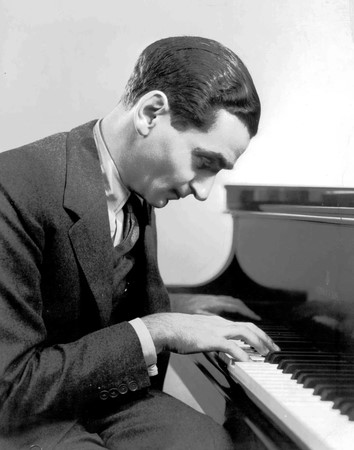Please note this article was originally published last week, but in an incorrect form. It is now restored with appropriate amendment.
Irving Berlin’s A White Christmas
A commentary by Alex Segal

When I first read the lyric of “White Christmas” and saw that it ends with a quotation – presumably of what is written in the Christmas cards – I was very surprised. Before trying to share my thoughts on this issue, I want to highlight the intricacy underpinning the lyric’s simplicity.
The rhyming subject-verb couplings, “the treetops glisten” and “children listen,” both evoke perceptual experience. But in one the grammatical subject refers to the (non-human) object of (visual) experience; in the other to the (human) subject of (aural) experience. A dreamlike timelessness is conjured by these present-tense clauses describing Christmases whose pastness is indicated by the only non-present tense finite verb – in the phrase “used to know.” The almost onomatopoeic, phonetically linked words “Christmas,” “glisten,” and “listen” evoke snow’s crystalline stillness and the bells’ tinkle. “Listen” hints at silence, being first heard (for a moment) as a stand-alone intransitive verb with no object, paralleling its rhyme word “glisten.” Then it is followed by a transitive verb with a similar meaning, the verb “to hear,” in effect providing an object. “Listen to hear,” in its unusualness – compared with “strive to hear” – foregrounds “listen” (already emphasized by rhyme), intensifying the quiet attentiveness.
Suggesting a move to modernity (in America sending Christmas cards increased greatly after 1915), a temporal arc from past (“Just like the ones I used to know”) to present (“With ev’ry Christmas card I write”) to future (“may all your Christmases be white”) transforms a past-oriented dreaming into a future-oriented dreaming. The Christmas card reference also hinges a shift from self to other: from clauses governed by “I,” to clauses governed by “your days” and “your Christmases.” The final two lines, the lyric’s only formal couplet, differing in prosody and rhyme from the first stanza’s ending, has an independence and self-sufficiency registered by melody. It hints at melancholy. The epithet “merry” qualifies not the proper noun “Christmas” – which is what it conventionally qualifies – but the less weighty noun “days,” with its suggestions of transience. The contrasts and parallels of “days” and “Christmases” associate Christmases with night. And the word “night,” suggested by the couplet without appearing in it, rhymes with the couplet’s rhyme words, “bright” and “white.”
It might be argued that the shift to quotation has value, adding to the ending’s transformations; that the shift to the written word – which, more than speech, evokes permanence and absence – accords with the ending’s future orientation and its melancholy. Self-quotation involves a self-distancing, sublimating yet intensifying emotion. The coinciding of the addressees of the couplet and those of the cards makes for simplicity yet fuses the particular and the universal. For if the addressees are in the first instance the addressees of the cards, at another level is a more universal addressee, a general You that embraces the song’s real-world audience. Seeing the couplet as a quotation creates a mise-en-abyme effect – an effect suggesting reflectiveness and mystery.
But these features are still there if the ending, unlike what precedes it, is understood as simply marked by (without quoting) the written word of the Christmas cards – or by the thought of this word. And there is awkwardness in the picture of the speaker writing exactly the same message in numerous Christmas cards and quoting unprompted this message verbatim. To see the self-quotation as a coping strategy exaggerates the pain; not seen this way, it smacks of self-absorption. And the couplet is an odd Christmas card message, not pertaining to the coming Christmas in particular. “May all your Christmases be white” needs the meaning-conferring context of the whole song, which – by associating white Christmases with our deepest yearnings, with home, childhood, a fusion of nature and tradition – makes symbolic the wish and the very phrase White Christmas. Situated in the first instance not in the lyric’s hitherto-used direct speech but in a quotation of a brief written text, the wish is separated also from the speaker’s dreamy inwardness that confers a kind of poetry on it. The oddities detract, I think, from the song’s haunting strangeness. Singers never signal this kind of quotation.
So I find myself wishing that the quotation is barely quotation; that it is not of the inscription in the cards but of the inner thought that accompanies the writing – a past inner thought that becomes a present thought. The self-quotation would thus become so minimal as to avoid self-indulgence; the wish is no longer bound by focus on the coming Christmas, nor so separated from the speaker’s inwardness. I can still dream of the “White Christmas” I used to know.
Alex Segal
This was originally published as a comment in the blog https://wordsmusicandstories.wordpress.com/. Reproduced with permission.


















